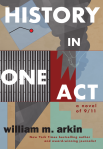Today in Secret History: February 10
As people continue to fret about an Israeli (or American) attack on Iran, is there some lesson we can learn from pre-Iraq war history?
On February 10, 2003, the main body of the 3rd Battalion, 160th Special Operations Aviation Regiment (SOAR) arrived at H-5 airfield in the eastern desert of Jordan in preparation for the second Gulf War (All Roads Lead to Baghdad, p. 97), an in-the-shadows unit, in support of a non-existent special operations task force, at a secret base in a classified country. Though in hindsight it looked like a war to depose Saddam Hussein was a certainty, at the time, there was still quite a public and international debate.
Of course, from Baghdad’s perspective, war seemed more and more certain, what with the accelerated bombing already taking place under the cover of Operation Southern Focus, with CIA and special operations forces inside Iraq, and special operations deployments building up along the Iraqi border in Jordan and Saudi Arabia, not to mention the conventional military deployments centered in Kuwait. In hindsight, as crazy as it might seem, it looks like everyone’s preferred outcome – everyone in the U.S. and Iraqi governments, that is – was war.
By the time the shooting officially started a month later in mid-March, this secret Joint Special Operations Task Force West (JSOTF-W), also known as Task Force Dagger, had built up to include these special operations helicopters of the 3rd Battalion, the 5th Special Forces Group from Ft. Bragg, North Carolina, a company from the Army Reserve 19th Special Forces Group, British and Australian special operations forces, elements of the 75th Ranger Regiment, a quick reaction force from the 82nd Airborne Division, a High Mobility Artillery Rocket System [HIMARS] battery, and the even more secret Task Force 20 (TF-20), the black Joint Special Operations Command (JSOC) task force given the mission of finding Iraq’s WMD.
According to the official Army special operations history, the Jordanian-based task force had two missions: “deter the launch of Scuds from western Iraq, and support conventional forces in their attack in southern Iraq.” I love the use of the word deter here: Deter what? Ignore for a moment that there were no Scud missiles to be found in Iraq anyhow, and certainly none deployed in western Iraq — an intelligence analysis failure that drove a lot of effort — but how does a secret mission deter? Of course, the sage explanation for the sensitive Jordanian deployments – and Jordan denied the presence of any U.S. military forces in the country – was to keep Israel out of any war, which is to say, to convince Israel that the United States was doing all it could do to prevent Iraqi attack, just as it had done – and failed to do – in 1991.
It’s a head-hurting house of secret cards: a highly visible and officially secret coalition special operations force preparing to infiltrate into a country even prior to the “outbreak” of war. Retired Gen. Mike Delong, the deputy commander of U.S. forces, says in his autobiography Inside CENTCOM (p. 93) that up to 300 commandos, “dressed as native Iraqis” infiltrated into Iraq prior to March 19.
When the special operations forces found no Scuds, they moved on to Iraqi airfields and Hadithah Dam – which intelligence speculated might be intentionally blown up to flood the Euphrates River valley; again no explosives were found to corroborate such speculation. Some commandos headed for Saddam’s western palaces, others for suspected WMD sites. It wasn’t without cost on the U.S. side: Three Rangers were killed at Hadithah in what was probably the first suicide car bombing of the long war.
Did the deployments make war more certain? Would they have changed the public (or international) debate had they been known? Do these clandestine special operations undermine or enhance diplomacy? Why do we fall back on rote words like deterrence when in fact the mission was destruction and prevention? All good questions still very much unanswered today.


